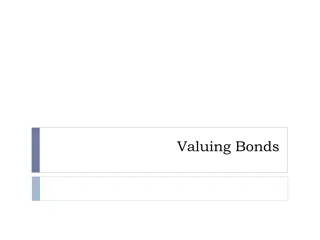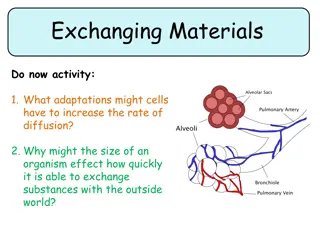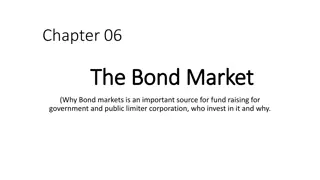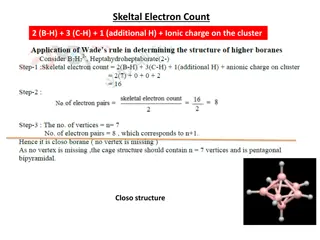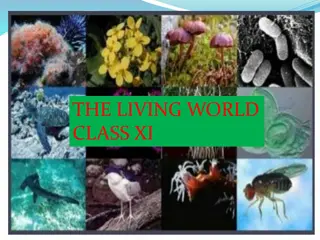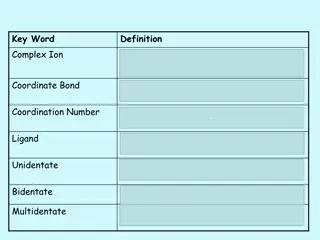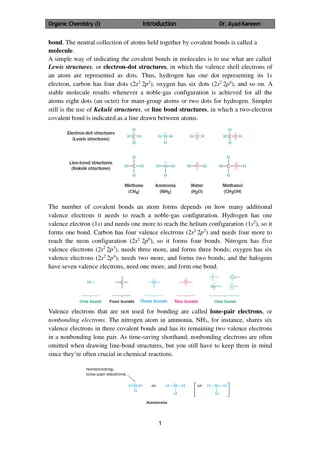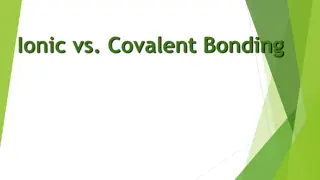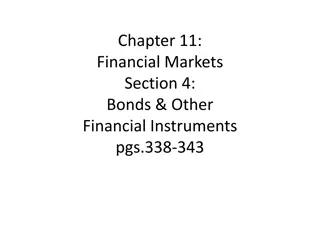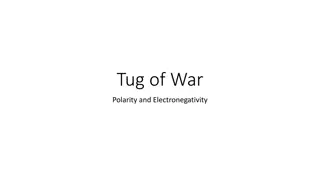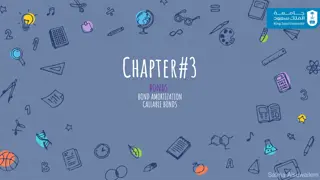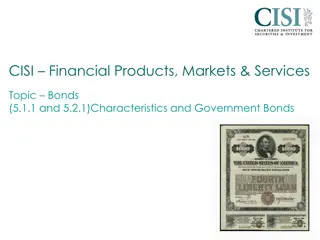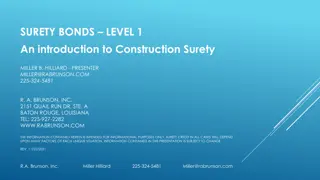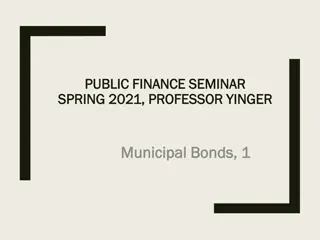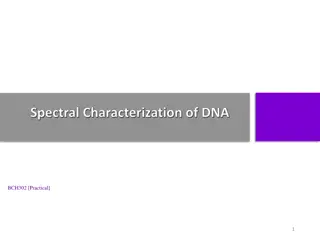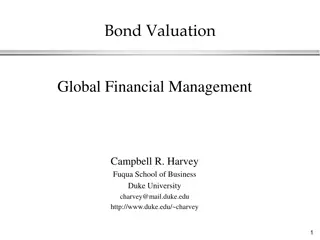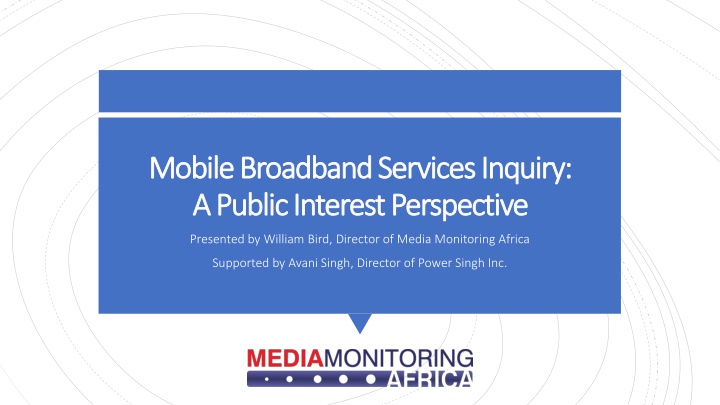
Determining Living Organisms and Chemical Bonds
Characteristics of living organisms, the properties of molecules, and the fundamentals of chemical bonds in this interactive quiz featuring questions on criteria for life, atomic structure, and organic molecules.
Download Presentation

Please find below an Image/Link to download the presentation.
The content on the website is provided AS IS for your information and personal use only. It may not be sold, licensed, or shared on other websites without obtaining consent from the author. If you encounter any issues during the download, it is possible that the publisher has removed the file from their server.
You are allowed to download the files provided on this website for personal or commercial use, subject to the condition that they are used lawfully. All files are the property of their respective owners.
The content on the website is provided AS IS for your information and personal use only. It may not be sold, licensed, or shared on other websites without obtaining consent from the author.
E N D
Presentation Transcript
Mobile Broadband Services Inquiry: Mobile Broadband Services Inquiry: A Public Interest Perspective A Public Interest Perspective Presented by William Bird, Director of Media Monitoring Africa Supported by Avani Singh, Director of Power Singh Inc.
Not Not- -for since 1993. for- -profit organisation profit organisation that has been monitoring the media Objective Objective: To promote the development of a free, fair and ethical media culture media culturein South Africa and the rest of the continent. free, fair and ethical Seeks to address media ethics, media quality and media freedom through a human rights human rights- -based approach based approach. About Media Monitoring Africa Over 25 years of experience in media monitoring and direct engagement engagement with the media, civil society, state institutions and the public. media monitoring and direct Proven track record of demonstrating leadership, creativity and progressive approaches progressive approaches to meet the changing needs of the media environment. leadership, creativity and For more information, please visit www.mediamonitoringafrica.org www.mediamonitoringafrica.org.
As of January 2020, approximately 63% of people in South Africa were part of the digital population as internet users. According to the General Household Survey, only 10.4% of South African households have access to the internet at home, with this figure sitting at 1.7% in rural areas. Access through mobile devices appears to be the most Access through mobile devices appears to be the most comment source of access, with 60.1% of people using comment source of access, with 60.1% of people using mobile devices to access the internet mobile devices to access the internet, 10.4% from home, 16.2% from work and 10.1% from elsewhere. Digital divide According to the Department of Basic Education, 63.5% of public schools do not have computer centres, and only 18.5% of schools have internet connectivity for teaching and learning.
Inequalities of access are more prominent in vulnerable and marginalised groups, such as women, children and persons with disabilities. Limited coverage and slower internet speeds are more prominent in rural and peri-urban areas. Inequality of access Access is less favourable to users on mobile networks, where broadband speeds are comparatively low and subject to metred access, traffic caps and high costs. Ownership structures in broadband markets face limited competition, which creates complications for the conditions of access to service provision. Challenges relating to access are closely aligned to broader social issues, including poverty, exclusion, cultural norms, ICT competencies and buying power. Source: APC, Ending digital exclusion , April 2016
Exorbitant costs Digital literacy skills Anti-poor pricing Challenges Established oligopoly Barriers to new entrants
Public interest Commercial operators Competing interests
Urge ICASA to prioritise remediating digital inequality in South Africa in an effort to achieve meaningful universal access Adopt a rights- based approach to the inquiry, with a focus on freedom of expression, access to information and equality Seek to ensure the coherent and accountable implementation of policies and better coordination across different stakeholders Approach issues in a holistic manner that considers all aspects affecting the digital divide across different segments of the market Purpose of this submission
Recommendation I: Need to set out clear overarching objectives in the discussion document Recommendation II: Need to adopt a rights-based approach in the public interest Recommendation III: Need to align the discussion document with the findings of the Competition Commission Recommendation IV: Need to address the lack of coordination in matters pertaining to internet governance Recommendation V: Need to address the challenges in the assignment of spectrum and other related barriers Summary of recommendations
Recommendation I: Overarching objectives of the discussion document
According to the media statement that accompanied the publication of the discussion document: It is the Authority s view that this Inquiry will contribute positively to the broader government initiatives contribute positively to the broader government initiatives aimed at ensuring universal access to and affordable broadband services for all South Africans as aimed at ensuring universal access to and affordable broadband services for all South Africans as contemplated in the National Development Plan contemplated in the National Development Plan. Furthermore, the Authority believes that the pending licensing of high-demand spectrum will also provide much needed relief in reducing the cost for provision of broadband services to South Africans. Concerned that this is not borne out not borne out by the discussion document itself. Need to make overarching objectives clear in the discussion document namely, to achieve universal, meaningful access to broadband services for all persons in South Africa meaningful access to broadband services for all persons in South Africa. achieve universal, Important to frame the discussion document in the relevant context and in a holistic manner relevant context and in a holistic manner. Concerns regarding the current approach of the discussion document: Overlap Overlap with the work of the Competition Commission. Limited relief Limited relief as a result of the findings and recommendations of the Competition Commission according to Research ICT Africa, Due to lack of regulation and an inherently imperfect market, even after the reduction, prices remain anti prices remain anti- -poor poor. Competition is only one narrow one narrow aspect in the broader ecosystem. Any strategy to reduce prices needs to be dealt with holistically to bring the unconnected online including through addressing supply / demand side considerations and digital skills deficits. holistically to bring the unconnected online,
International Covenant on Civil and Political Rights Res. 32/13 of Human Rights Council Sustainable Development Goals National Development Plan South African Connect ICASA(?)
Seven-point implementation plan
Recommendation II: Rights-based approach in the public interest
ICASA, as an organ of state, is constitutionally Constitution of the Republic of South Africa, 1996 in all its endeavours. constitutionally- -mandated mandated to respect, protect and promote the As has been noted by the Supreme Court of Zimbabwe: Restriction upon or interference with the means of communication, whatever form it may take, abridges the guarantee of freedom of expression. A fortiori any monopoly which has the effect, whatever its purpose, of hindering the right to receive and impart ideas and information, effect, whatever its purpose, of hindering the right to receive and impart ideas and information, violates the protection of this paramount right violates the protection of this paramount right . A fortiori any monopoly which has the Constitutional underpinnings Constitutional underpinnings in South Africa Connect and the ICT Policy Whitepaper. Rights Rights- -based approach in the public interest should similarly be followed by ICASA based approach in the public interest should similarly be followed by ICASA in the discussion document and the strategy going forward. Place the discussion document at risk of becoming a hollow vehicle issue of public interest and national importance through the appropriate lens. hollow vehicle that does not approach this Failure to adopt a rights-based approach, or to place the public interest at the core, raises the question: in whose interest is the regulator acting in whose interest is the regulator acting?
Openness, transparency and accountability Political rights and decision- making Persons with disabilities Fundamental rights Best interests of the child Freedom of expression Access to information
Recommendation III: Alignment with the findings of the Competition Commission
Recommendations by the Competition Commission in respect of ICASA: Recommendations by the Competition Commission in respect of ICASA: That ICASA be required to regulate the mobile operators in order to give effect to the recommendation that all prepaid subscribers must be afforded a lifeline package of daily free data . That ICASA must provide formal regulatory status to the recommendation that mobile operators must afford all subscribers zero-rated access to content from public benefit organisations and educational institutions. That ICASA should provide formal regulatory status to the recommendation that all mobile operators must inform each subscriber, on a monthly basis, of the effective price for all data consumed by the customer. That there be continued engagement with ICASA on the processes for the provision of high demand spectrum. That ICASA undertake the process of defining what constitutes essential facilities to a customer in respect of mobile broadband services, in the context of setting pricing standards for such facilities. That ICASA be empowered by legislative amendments to regulate roaming, MVNOs mobile virtual network operators (MVNOs) and wholesale access agreements in line minimum pricing standards. That ICASA reinstitutes the regulatory accounting reporting requirement for Vodacom, MTN and Telkom operators. That ICASA considers models and regulatory changes to allow at least non-profit community networks, and possibly small commercial enterprises, to access the licenced spectrum not used by mobile operators in rural areas.
Lifeline package of free daily data Media and information literacy Zero-rating Alternative infrastructure Content from public benefit organisations and educational institutions Value of getting people online is diminished if not safe when doing so Ensure all persons have data access on a continual basis Actively promote in lower income areas Need for regulatory changes to allow community networks to access licensed spectrum Focus on persons who have had limited access in the past, including children Should be an open and transparent application process Not addressed in the discussion document
Recommendation III: Need to address lack of coordination
Section 41(1)(c) of the Constitution Section 41(1)(c) of the Constitution: all spheres of government and all organs of state within each sphere must provide effective, transparent, accountable, and coherent government for the Republic as a whole and must co-operate with one another in mutual trust and good faith by coordinating their actions and legislation with one another actions and legislation with one another . coordinating their Urgent need to address current lack of any overarching internet governance policy lack of any overarching internet governance policy on how current and proposed legislation that deals with information and digital rights realisation is to be managed by different role-players. Competing demands Competing demands made on the public and private sectors: Overly complex regulatory landscape Inhibits public participation Poses significant challenges to government s coordinated and effective implementation of the existing regulatory provisions Overlapping mandates or aspects not being assigned or accounted for by appropriate functionaries Monitoring and oversight Propose establishment of the Interdepartmental Steering Committee on Internet Governance Interdepartmental Steering Committee on Internet Governance, with ICASA to serve as a central node.
Recommendation V: Challenges in the assignment of spectrum / other barriers
Concerned by delays in digital migration and the release of high demand spectrum delays in digital migration and the release of high demand spectrum Broader impact on the telecommunications industry and the public According to the Ministry of Finance: the delay in digital migration and the spectrum allocation process is the single biggest constraint in the growth of the telecommunications sector and is a bottleneck for broader economic growth Advent of 5G technology 5G technology Need to revise national broadband policy revise national broadband policy, including targets and implementation Licensing conditions Licensing conditions of operators more work to be done in connecting the unconnected Use of universal service and access funds universal service and access funds to ensure last-mile connectivity need for transparency and accountability Barriers to entry Barriers to entry for new entrants in the market Dominance Dominance of established market players Critical to the full understanding of achieving universal, meaningful access to broadband services achieving universal, meaningful access to broadband services for all persons in South Africa
Transparency and accountability Universal service and access funds Regulation Licensing conditions Coordination

